Le MS 315 Bruxelles
English Translation
Le MS.315 a été développé à partir du MS.300 avion d'entraînement dont le premier prototype vola en 1930, des variantes MS301 et MS302
Le Morane-Saulnier MS315 a effectué son premier vol en Octobre 1932. C’est un avions solide à aile parasol haute Il est de construction mixte avec un train d'atterrissage indépendant , il était propulsé à l origine par un moteur Salmson 9Nc à étoile de 135 CV (101kW)
.jpg) |
| Logo Salmson |
La production de 346 avions suivi les quatre prototypes .33 furent construits après la 2° Guerre Mondiale. En outre, cinq avions plus puissant MS315 / 2 ont été construits pour un usage civil, suivit d’un MS316 avec un moteur Régnier en V inversé .
Dans les années 1960, 40 MS.315 sont utilisés comme remorqueurs de planeurs dans le civil après une remotorisation avec des moteurs Continental W670K moteur en étoile de surplus de 220 CV (164kW) . Ils furent redésignés le MS.317.
Histoire
Le MS 315 fut la cheville ouvrière de l'Armée française et de I’ Aéronavale et divers écoles d’aviation militaires (Istres et Salon de Provence) ou civiles
Il a été la monture préférée avant-guerre des pilotes d’acrobatie comme Thoret, Fleurquin et Detroyat.
Entre 1960 et 1962, 40 MS315s ont été à nouveau avec le moteur 164kW guerre excédent Continental W-670K radial, ils ont également des roues de plus grand disque de frein et la roue de forage au lieu d'origine de serrage
.jpg) |
.jpg) |
.jpg) |
| MS 317(Internet) |
Moteur Continental |
MS 317(Internet) |
Ils ont été rebaptisé M.S.317
Versions
MS.315 350 construits avec moteur à étoile 135CV (101kW) Salmson 9Nc,
MS.315 / 2 5 construits Avoir motorisation plus puissante version civile
MS.316 1 construit variante propulsée par un moteur V inversé Régnier
MS.317 40 convertis. années 1960 avec un Continental W 670K moteur étoiles de 220 CV (164kW),
Caractéristiques
M.S.315 / M.S.317
Entrainement
Equipage 2
Poids à vide 697kgs
Poids (décollage) 981kgs
Longueur 7,58 m
Hauteur 2.68
Envergure 12 m
Surface alaire 21.6m2
Moteur Salmson 9Nc pour MS 315 W Continental 670K radial enginefor MS 317
Vitesse (MS 315) 170 km / h
.png) |
.jpg) |
| France |
Aéronavale |
The MS.315 was developed from the earlier MS.300 primary trainer whose the first prototype flight in 1930, and its M.S.301 and M.S.302 variants
The Morane-Saulnier M.S.315 the first flew take place in October 1932. Of typically robust parasol high-wing configuration, it was of mixed construction with divided main landing gear he was powered by a 135hp (101kW) Salmson 9Nc radial engine
.jpg) |
| Logo Salmson |
A production run of 346 aircraft followed the four prototypes including 33 of them built after the second world war. In addition, five higher-powered M.S.315/2 aircraft were built for civil use, plus a single M.S.316 with a Regnier inverted-vee engine.
In the 1960s 40 MS.315 used as civil glider tugs were modified with a 220hp (164kW) Continental W670K radial engine then in use as civil glider tugs and re-designated the MS.317 .
History
The type became the workhorse of the French Armée de I'Air and Aéronavale and various militaries (Istres et Salon de Provence ) and civil flying schools
It was a favourite at many pre-war airshows flown by such notables as Thoret, Fleurquin and Detroyat. Between 1960 and 1962, 40 M.S.315s were re-engined with the 164kW war-surplus Continental W-670K radial, They have also biggest wheels with disk brake and drill wheel instead original clamp
They were redesignated M.S.317
.jpg) |
.jpg) |
.jpg) |
| MS 317(Internet ) |
Continental motor (Internet ) |
MS 317 (Internet ) |
Versions
MS.315 350 built Production version with a 135hp (101kW) Salmson 9Nc radial engine,
MS.315/2 five built. Higher powered civil version
MS.316 one built Variant powered by a Regnier inverted Vee engine
MS.317 40 converted. 1960s conversions with a 220hp (164kW)Continental W 670K radial engine,
Specifications
M.S.315 / M.S.317
Trainer
Crew 2
Weigth empty 697kgs
Weigth (take off ) 981kgs
Length 7.58 m
Heigth 2.68
Wing Span 12
Wing Area 21.6m2
Engine Salmson 9Nc for MS 315 Continental W 670K radial enginefor MS 317
Speed (MS 315 ) 170 km/h
.png) |
.jpg) |
| France |
French Aeronavale |






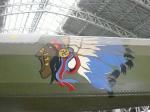
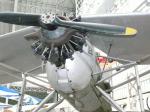
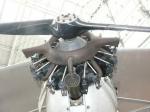
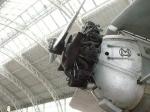
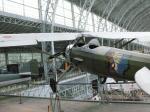
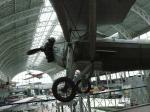
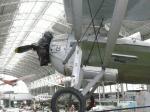
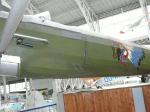
.jpg)
.jpg)
.jpg)
.jpg)
.jpg)
.png)
.jpg)